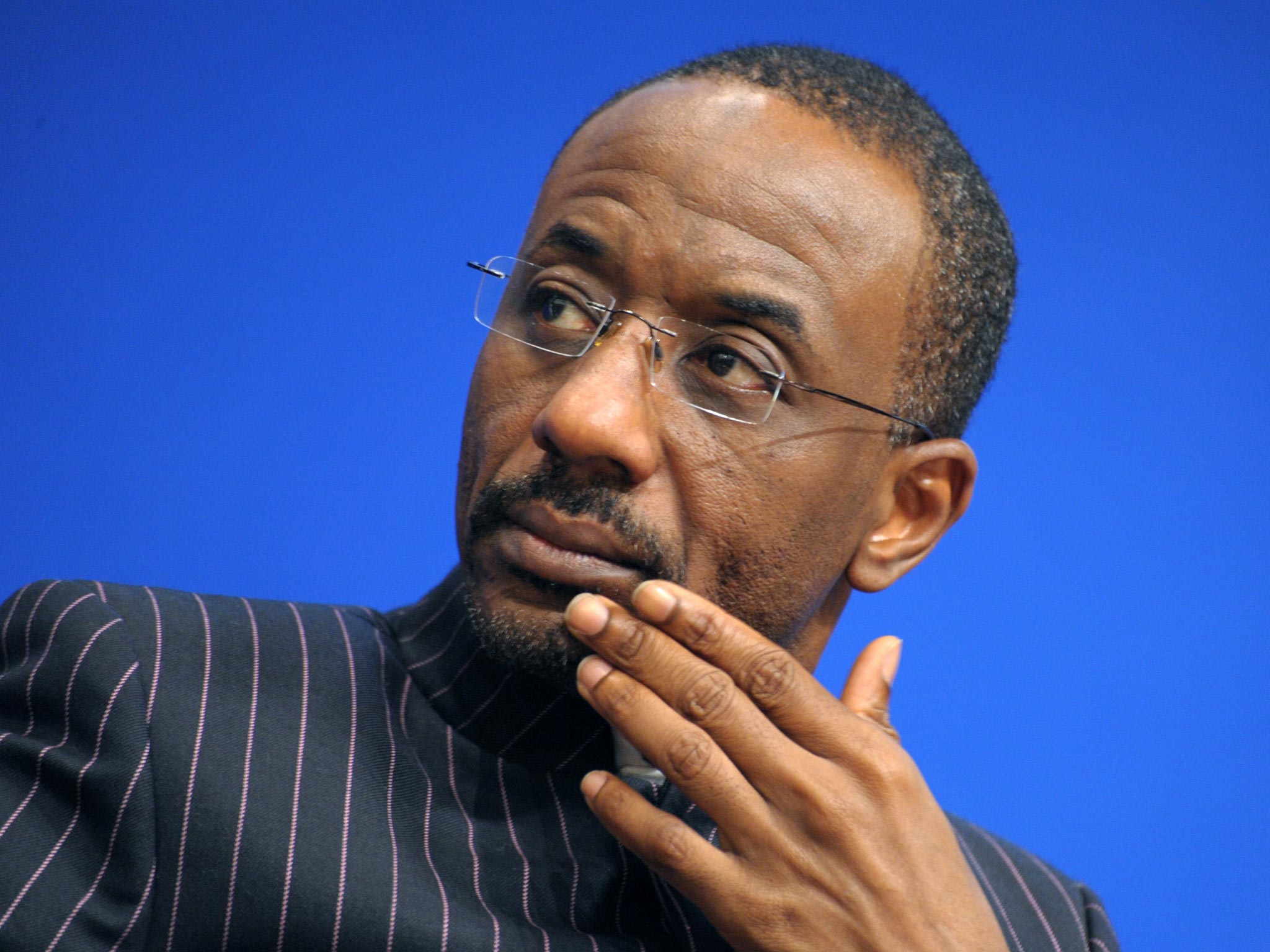Lamido Sanusi: Brave Nigerian bank governor who fought corruption is pushed out
Sanusi reported last year that $50bn of oil sold by the state’s Nigerian National Petroleum Corporation had not been paid to the government

Your support helps us to tell the story
From reproductive rights to climate change to Big Tech, The Independent is on the ground when the story is developing. Whether it's investigating the financials of Elon Musk's pro-Trump PAC or producing our latest documentary, 'The A Word', which shines a light on the American women fighting for reproductive rights, we know how important it is to parse out the facts from the messaging.
At such a critical moment in US history, we need reporters on the ground. Your donation allows us to keep sending journalists to speak to both sides of the story.
The Independent is trusted by Americans across the entire political spectrum. And unlike many other quality news outlets, we choose not to lock Americans out of our reporting and analysis with paywalls. We believe quality journalism should be available to everyone, paid for by those who can afford it.
Your support makes all the difference.Nigeria’s President has ousted the Central Bank governor who exposed billions of missing petrodollars. Critics say the sacking is a warning to whistleblowers in the run-up to a presidential election.
President Goodluck Jonathan accused Lamido Sanusi of “financial recklessness and misconduct” and suspended him on Thursday, just days before the governor reportedly planned on stepping down.
Nigeria’s currency immediately weakened in response. Last year Mr Sanusi reported that $50bn of oil sold by the state’s Nigerian National Petroleum Corporation had not been paid to the government. The Senate committee on finance last week ordered an independent audit into the missing money, now said to amount to about $20bn. The finance ministry said receipts recovered in an audit accounted for the rest of the missing money.
Mr Jonathan had dismissed Mr Sanusi’s charges as “spurious” and has said that corruption is not among the biggest problems suffered in Nigeria.
Mr Jonathan named a deputy governor to act in Mr Sanusi’s place but also immediately sent to parliament the name of another banker he proposed as the new custodian of the federal reserves, making clear that he has effectively fired Mr Sanusi.
The reform-minded banker apparently planned a three-month leave of absence starting next month before stepping down when his five-year term expired in June, according to the London-based analyst Murtala Touray of IHS Country Risk.
“We assess that was before he took on the powerful Nigerian National Petroleum Corp, which denies his charges of missing billions,” Mr Touray said.
Mr Sanusi has said corrupt vested interests keep what should be a wealthy country impoverished and are at the heart of 90 per cent of the problems confronting Nigeria, from an Islamist uprising in the north-east and ethnic strife to a dearth of jobs, education and healthcare.
“We don’t have development because vested interests continue to rape this country and take the money out. The only way you’re going to move from potential to reality is to ask yourself how can we overcome the fear of vested interests and how can we confront them,” he told a TedX forum in the capital, Abuja, in August.
On Thursday, the naira dropped from 163 to 169 to the dollar when Mr Jonathan’s statement became public.
Bismarck Rewane, an economist, warned of “a very difficult time” for the naira and Nigeria’s financial markets in the near term. In the long term, he said it raises questions about the future independence and autonomy of the Central Bank.
“President Jonathan’s suspension of Mr Sanusi is intended on the one hand to send a message to his successor not to wash the government’s dirty linen in public, and on the other to discredit his report on the [missing] $20bn,” said Mr Touray.
The opposition All Progressives Congress coalition said Mr Jonathan’s move sends “a strong signal to all Nigerians that it [Mr Jonathan’s administration] will not tolerate any exposure of corruption.”
Mr Sanusi, 52, who has spearheaded bank reforms and acknowledged making powerful enemies among vested interests in a country that Transparency International lists as one of the most corrupt in the world, could not be reached for comment.
Mr Sanusi said he received death threats and frequent warnings that he would be fired after he took on bank CEOs who had stolen billions in deposits and who he said had bought political protection or were themselves politicians. He called his move, just after taking office in 2009, “a decision that would pitch us against powerful economic and political forces”.
AP
Join our commenting forum
Join thought-provoking conversations, follow other Independent readers and see their replies
Comments